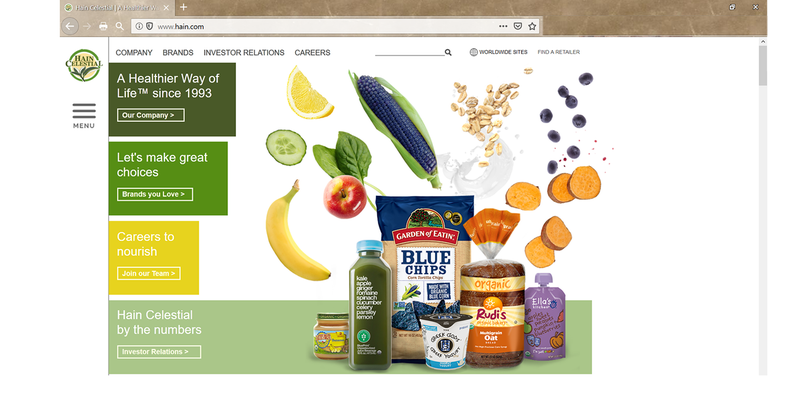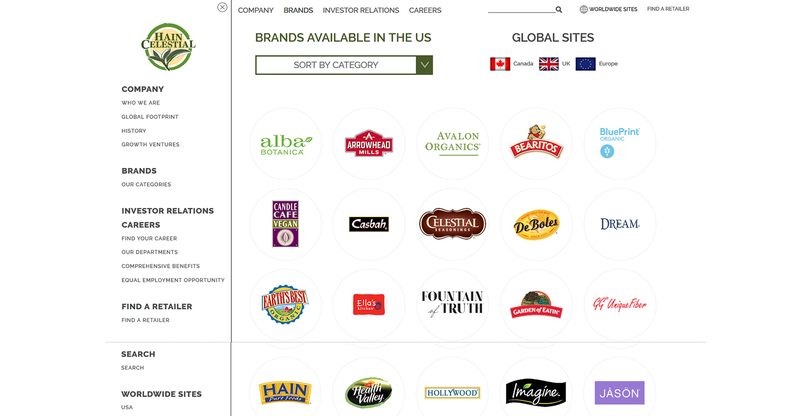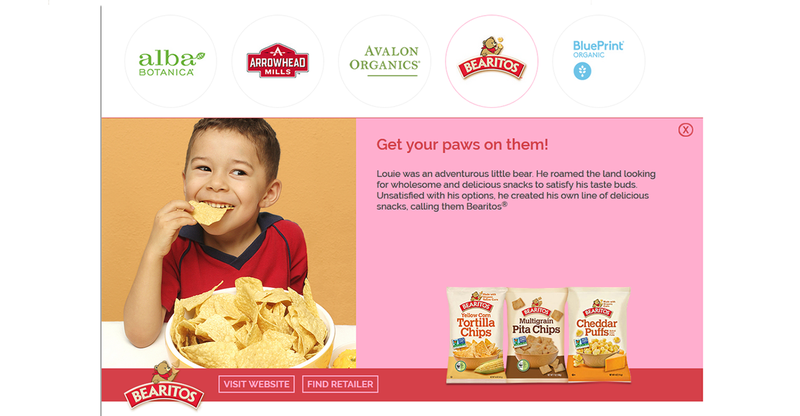Although the reasons for Hain’s declining sales likely are numerous, one stands out: The company stopped focusing on customers.
September 26, 2019

The recent news that Hain Celestial sold its Tilda rice division didn’t come as a surprise. It is clear that the company is doing all it can to reduce expenses and improve its balance sheet.
While it is hard to know exactly what has impacted Hain Celestial’s declining sales over the years—and in truth there are likely many culprits—a review of its lackluster online marketing presence makes it easy to connect the dots. Hain Celestial’s many brands, some prominent, just don’t seem to prioritize branding or fostering an ongoing relationship with their customers. Many of their social media pages confirms that consistent customer-centric marketing is not at the top of their to-do lists. Neither is customer engagement. One has to wonder: Would Hain Celestial find itself in this position had the company’s leadership prioritized branding and connecting with customers?
It wasn’t that long ago that Hain Celestial brands held strong market positions and commanded even stronger brand awareness. I worked with them closely many years ago, and I remember multiple discussions with brand managers looking to increase their visibility, presence and customer connections. The conversations focused on customers and how to capture customers’ attention and trust in an increasingly competitive marketplace. Sadly, the brand seems to have lost its way.

What can Hain do to turn the corner and revitalize their brand?
Revamp its messaging
Hain’s messaging is chock-full of brand-speak that leaves the customer out of the conversation. In today’s high-tech, multitasking world, it is not enough to simply list the benefits of your product and hope the customer relates them to their needs. Rather, the customer needs the brand to show how it is relevant to them. In fact, 69% of online shoppers say that the quality or relevance of a company’s message influences their perception of the brand, according to Think with Google, an analytics tool.

Personalize the customer experience
According to global communications firm Edelman, 80% of consumers are more likely to make a purchase when brands offer a personalized experience. This is yet another pain point for Hain. Many of Hain’s individual branded websites feel like something out of yesteryear, out of alignment with the needs and wants of today’s customers. That means Hain has ample opportunity to create customer-centric quizzes, surveys and product finders that offer a customized list of product recommendations. This approach makes it easy for customers to find exactly what they need such as organic, low-sugar, gluten-free and dairy-free products while showcasing all the brand’s products that meet these needs.
The possibilities for Hain’s large portfolio of products are endless. This also makes smart business sense. According to marketing firm Avionos, 54% of online shoppers like it when the brand helps them find products that they may not have otherwise purchased.
Make their customers feel valued
Accomplishing this goal starts with the awareness that your customer’s experience with your brand, including how they are treated, is what distinguishes your brand in a crowded market. Making your customers feel important is more crucial than ever. Segment research confirms that 71% of customers feel frustrated when their experience with a brand feels impersonal. Companies have innumerable ways to accomplish this, but the point is that the customer needs to take center stage. This reality is even more pronounced with millennials who have been referred to as “generation me” because they crave individual recognition.

The lesson to be learned
Hain Celestial’s experience is a lesson for all large brands that have grown via acquisition: If your relationship with the customer gets lost in your quest for growth, you’re much more apt to lose the customer. It is also a lesson on the power of constant branding and the investment required. Brands with memorable branding are easily recognizable even when novel brands hit the market. Beyond that, customers are more likely to buy from brands that they’re familiar with and trust. Add to this the importance of repetition, and it is clear that continual branding remains a cornerstone of successful brands—truth that Hain appears to have forgotten.
We can only hope that Hain will get the message and reprioritize its brands and customers. The company certainly has some great brands to work with. After all, it is one thing to cut expenses, but entirely different to increase revenues. The latter is a lot more fun.
Shahla Hebets is the founder of Think Media Consulting, a digital marketing consultancy firm. Think Media creates smart, relevant, and authentic digital marketing, social media and ecommerce strategies that drive revenue for health and wellness brands.
Have some big ideas or thoughts to share related to the natural products industry? We’d love to hear and publish your opinions in the newhope.com IdeaXchange. Check out our submission guidelines.
About the Author(s)
You May Also Like




